By Hayes Hunt and Thomas O’Rourke
 On Wednesday, Rajat Gupta, former director of Goldman Sachs, will be sentenced for conspiracy and securities fraud in connection with insider trading. Gupta is requesting a non-custodial sentence, based on his lifetime of good work and humanitarian efforts. The prosecution is seeking 8-10 years of incarceration. Over 200 character letters have been submitted to the sentencing judge, Jed S. Rakoff, on Gupta’s behalf.
On Wednesday, Rajat Gupta, former director of Goldman Sachs, will be sentenced for conspiracy and securities fraud in connection with insider trading. Gupta is requesting a non-custodial sentence, based on his lifetime of good work and humanitarian efforts. The prosecution is seeking 8-10 years of incarceration. Over 200 character letters have been submitted to the sentencing judge, Jed S. Rakoff, on Gupta’s behalf.
When the Wall Street Journal reported this outpouring of support for Gupta, people sent letters to the Court in response, seeking stiff punishment. According to the WSJ Law Blog, Kenneth Lehrer, a former adjunct professor of finance at the University of Houston, wrote on “behalf of his former students” and to inform Judge Rakoff that “granting Mr. Gupta a very light or reduced sentence for his despicable actions would not truly balance the scales.” Another letter came from Brian D. Walker, the founder of an executive search firm, demanding punishment and noting that “whether or not Gupta is a ‘Good Man’ is irrelevant.”
What should Judge Rakoff do with these letters?
First, the letters appear to be unreliable and irrelevant. Although the Federal Rules of Evidence do not apply to sentencing, “[i]n resolving any dispute concerning a factor important to the sentencing determination, the court may consider relevant information . . ., provided that the information has sufficient indicia of reliability to support its probable accuracy.” U.S.S.G. § 6A1.3 (emphasis added). It is difficult to imagine how these letters are reliable, considering they come from concerned citizens, rather than people with personal knowledge about the case. Even if reliable or accurate, what bearing do they have on Gupta’s sentence? When imposing a sentence, the court must consider the factors under 18 U.S.C.§ 3553(a), which, as a general matter, concern: (1) the specifics of the crime; (2) the background of the defendant; and (3) the goals of punishment. A letter from a member of the public that knows a defendant could be relevant to the defendant’s character or good works. On the other hand, letters from the public on the appropriate sentence are not relevant to any sentencing factor.
 Second, Federal Rule of Criminal Procedure 32(i), which governs sentencing hearings, does not set aside room for angry letters from agitated citizens. This Rule discusses the presentence report and evidence introduced by the parties. In addition, the Rule describes who has an “opportunity to speak” at sentencing hearings. Along with the attorneys and the defendant, the court “must address any victim of the crime who is present at sentencing and must permit the victim to be reasonably heard.” Under the guidelines, a “crime victim” is anyone directly or proximately harmed by the offense. U.S.S.G. § 6A1.5 (citing 18 U.S.C. § 3771(e)). Public sentiment about the need for justice, as a general principle, has no place in a federal sentencing hearing, and it shouldn’t.
Second, Federal Rule of Criminal Procedure 32(i), which governs sentencing hearings, does not set aside room for angry letters from agitated citizens. This Rule discusses the presentence report and evidence introduced by the parties. In addition, the Rule describes who has an “opportunity to speak” at sentencing hearings. Along with the attorneys and the defendant, the court “must address any victim of the crime who is present at sentencing and must permit the victim to be reasonably heard.” Under the guidelines, a “crime victim” is anyone directly or proximately harmed by the offense. U.S.S.G. § 6A1.5 (citing 18 U.S.C. § 3771(e)). Public sentiment about the need for justice, as a general principle, has no place in a federal sentencing hearing, and it shouldn’t.
Sentencing in a high profile case, just like any other, should not be influenced by public sentiment. Upset citizens, without any legal standing in a criminal case, should write to Congress not the Courts.
Thomas M. O’Rourke joined the firm in September 2012 as an associate in the Commercial Litigation Group. Prior to joining the firm, Thomas completed two clerkships, serving as a law clerk to U.S. District Court Judge Mitchell S. Goldberg of the Eastern District of Pennsylvania from 2010-2012 and U.S. Magistrate Judge David R. Strawbridge of the Eastern District of Pennsylvania from 2009-2010.

 Giving your opinion on politics or complaining about the boss to your friends via Facebook is so commonplace and rampant that few people probably stop to think about the consequences of their posting. Less thought is given to the magnitude of a Facebook user “liking” something — a photo, a status update, a fan page, etc. Yet, these actions can have very significant consequences for the person behind such activity. The legal realm is still adapting to the changing landscape of social media with somewhat incongruous legal results, depending on who your employer is and, in some cases, exactly what your Facebook or other social media activity was.
Giving your opinion on politics or complaining about the boss to your friends via Facebook is so commonplace and rampant that few people probably stop to think about the consequences of their posting. Less thought is given to the magnitude of a Facebook user “liking” something — a photo, a status update, a fan page, etc. Yet, these actions can have very significant consequences for the person behind such activity. The legal realm is still adapting to the changing landscape of social media with somewhat incongruous legal results, depending on who your employer is and, in some cases, exactly what your Facebook or other social media activity was. company? The First Amendment does not apply to private employers because the Constitution only protects free speech from government interference. Thus, employees can be fired or punished for almost anything they do. In most circumstances, private companies employ workers at will, meaning the companies’ management decisions cannot be challenged unless those decisions discriminate against an employee because of the employee’s age, gender or other protected characteristic. Therefore, a political statement, if made by an employee of a private company, could well be grounds for termination.
company? The First Amendment does not apply to private employers because the Constitution only protects free speech from government interference. Thus, employees can be fired or punished for almost anything they do. In most circumstances, private companies employ workers at will, meaning the companies’ management decisions cannot be challenged unless those decisions discriminate against an employee because of the employee’s age, gender or other protected characteristic. Therefore, a political statement, if made by an employee of a private company, could well be grounds for termination.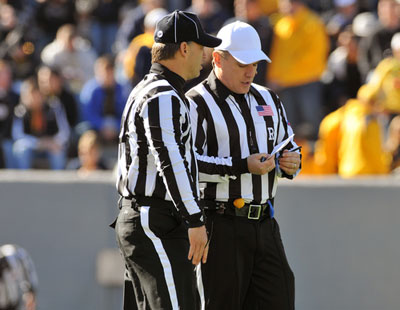
 Next week, oral argument will be heard in
Next week, oral argument will be heard in  answer is not as simple as “it came from Smith’s phone number.” This is no different than what is required to authenticate a handwritten letter. A letter from Mary Jones may bear her signature, but that signature could be forged. A court would likely require the proponent produce something beyond the letter itself as evidence such as a witness who could identify her signature.
answer is not as simple as “it came from Smith’s phone number.” This is no different than what is required to authenticate a handwritten letter. A letter from Mary Jones may bear her signature, but that signature could be forged. A court would likely require the proponent produce something beyond the letter itself as evidence such as a witness who could identify her signature. It will be interesting to see whether the Pennsylvania Supreme Court agrees with the lower court’s analysis or opts for a different standard of authentication. Regardless of the court’s answer, however, the safest way to get a text or instant message admitted into evidence will be to produce the sender or recipient of that message at trial.
It will be interesting to see whether the Pennsylvania Supreme Court agrees with the lower court’s analysis or opts for a different standard of authentication. Regardless of the court’s answer, however, the safest way to get a text or instant message admitted into evidence will be to produce the sender or recipient of that message at trial.
 While the EEOC’s position on the use of criminal background checks adds to the time and cost of implementing a screening policy, there remain many benefits to screening potential candidates, including:
While the EEOC’s position on the use of criminal background checks adds to the time and cost of implementing a screening policy, there remain many benefits to screening potential candidates, including: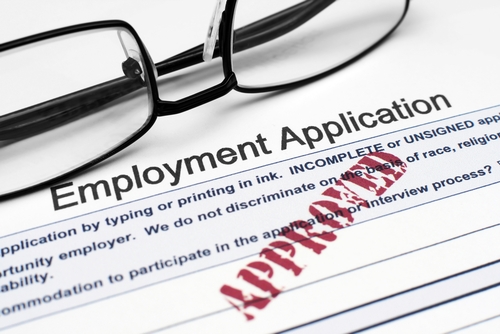 s can be held responsible for injuries caused by their employees if the employer failed to exercise reasonable care in hiring the employee. Obvious examples include failing to screen out a truck driver with multiple DUIs who then causes an accident; failing to screen out a convicted child molester from a position at a day care center; the hiring of a security guard with prior convictions for assault who then unjustifiably harms a patron; or failure to screen out a convicted stalker who then harasses a co-worker. The risk of negligent hiring liability can be substantially reduced through criminal background screening.
s can be held responsible for injuries caused by their employees if the employer failed to exercise reasonable care in hiring the employee. Obvious examples include failing to screen out a truck driver with multiple DUIs who then causes an accident; failing to screen out a convicted child molester from a position at a day care center; the hiring of a security guard with prior convictions for assault who then unjustifiably harms a patron; or failure to screen out a convicted stalker who then harasses a co-worker. The risk of negligent hiring liability can be substantially reduced through criminal background screening.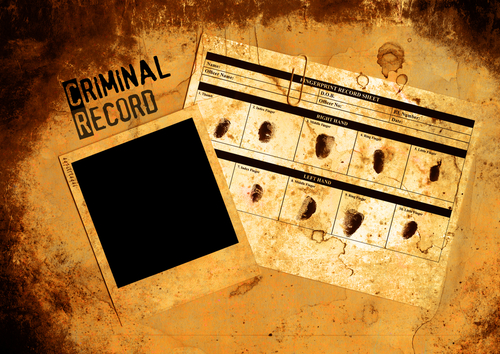 By Hayes Hunt and Jonathan Cavalier
By Hayes Hunt and Jonathan Cavalier is a recipe for a discrimination lawsuit. The employer must also make sure that anyone involved in hiring or background screening is trained on the employer’s policy and on how to implement and follow it. Interviewers should be prepared to field questions from applicants about the screening policy and what it means if an applicant has a criminal conviction. Finally, the employer must abide by the policy and only consider convictions that have a direct impact on the applicant’s fitness for the particular job at issue.
is a recipe for a discrimination lawsuit. The employer must also make sure that anyone involved in hiring or background screening is trained on the employer’s policy and on how to implement and follow it. Interviewers should be prepared to field questions from applicants about the screening policy and what it means if an applicant has a criminal conviction. Finally, the employer must abide by the policy and only consider convictions that have a direct impact on the applicant’s fitness for the particular job at issue. If criminal background screening is performed on applicants, the fact that a check was performed and its results should be made part of the applicant’s file. If a conviction is uncovered and that conviction is used in evaluating the applicant, the employer should document the ways in which the conviction is related to the job at issue and the weight given to the conviction in evaluating the applicant. If the applicant is not hired or given further consideration solely or partly due to a conviction, the employer should document that fact. If the employer disregards the conviction and hires the applicant, the reasons for that decision should be documented as well. Finally, the employer should provide an applicant who was not hired based on the existence of a criminal conviction a copy of the background check and the reasons for nonhire.
If criminal background screening is performed on applicants, the fact that a check was performed and its results should be made part of the applicant’s file. If a conviction is uncovered and that conviction is used in evaluating the applicant, the employer should document the ways in which the conviction is related to the job at issue and the weight given to the conviction in evaluating the applicant. If the applicant is not hired or given further consideration solely or partly due to a conviction, the employer should document that fact. If the employer disregards the conviction and hires the applicant, the reasons for that decision should be documented as well. Finally, the employer should provide an applicant who was not hired based on the existence of a criminal conviction a copy of the background check and the reasons for nonhire. and monitor for changes in those laws. Most of us believe, deep down, in second chances. However, businesses must be vigilant in employment decisions by using background checks.
and monitor for changes in those laws. Most of us believe, deep down, in second chances. However, businesses must be vigilant in employment decisions by using background checks. Actor Steve Martin, while on jury duty, tweeted the following to 380,000 fans
Actor Steve Martin, while on jury duty, tweeted the following to 380,000 fans Yet, for the most part, we accept the decision both institutionally and societally.
Yet, for the most part, we accept the decision both institutionally and societally.  The amount of political rhetoric on Facebook is staggering. People are using Facebook to give you a “play-by-play” of what they think about the November presidential election.
The amount of political rhetoric on Facebook is staggering. People are using Facebook to give you a “play-by-play” of what they think about the November presidential election.  A recent court decision has added support to the idea that there is no privacy on the internet.
A recent court decision has added support to the idea that there is no privacy on the internet. The Court’s decision may have important implications for civil discovery. For example, the Stored Communications Act prohibits companies providing electronic communication services from disclosing a user’s private information without the user’s consent. There is
The Court’s decision may have important implications for civil discovery. For example, the Stored Communications Act prohibits companies providing electronic communication services from disclosing a user’s private information without the user’s consent. There is 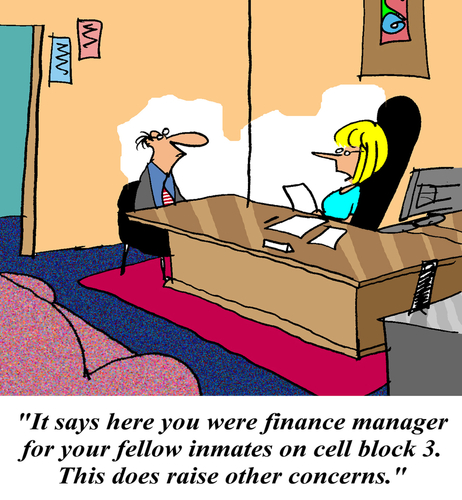 By Hayes Hunt and Jonathan Cavalier
By Hayes Hunt and Jonathan Cavalier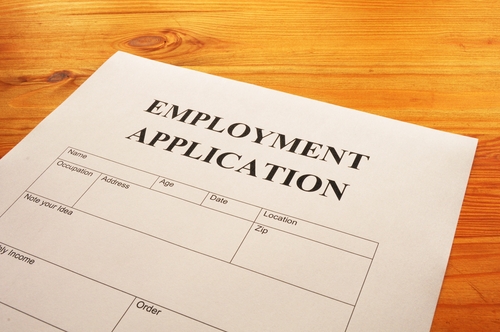 In a recent enforcement guidance release titled, “Consideration of Arrest and Conviction Records in Employment Decisions Under Title VII of the Civil Rights Act of 1964,” the EEOC reiterated its position that certain uses of criminal background checks in making employment decisions can violate Title VII. Once again, the EEOC stated its position that disqualification of an applicant based purely on the existence of a criminal record is likely to discriminate against applicants based on race and national origin.
In a recent enforcement guidance release titled, “Consideration of Arrest and Conviction Records in Employment Decisions Under Title VII of the Civil Rights Act of 1964,” the EEOC reiterated its position that certain uses of criminal background checks in making employment decisions can violate Title VII. Once again, the EEOC stated its position that disqualification of an applicant based purely on the existence of a criminal record is likely to discriminate against applicants based on race and national origin. Pennsylvania law on background checks in employment decisions is similar to the EEOC’s position. The use of background checks in hiring decisions in Pennsylvania is governed by 18 Pa. C.S. §9125, which expressly permits employers to consider felony and misdemeanor convictions of applicants in making hiring decisions. However, an applicant’s conviction may only be considered if the conviction relates to the applicant’s suitability for the specific job for which the applicant has applied. If the employer relies on a criminal conviction that is unrelated to the job, the act authorizes the applicant to sue and to recover actual damages, punitive damages and attorney fees. Finally, if an employer relies on a criminal conviction, in whole or in part, in choosing not to hire an applicant, the employer must notify the applicant in writing of that decision.
Pennsylvania law on background checks in employment decisions is similar to the EEOC’s position. The use of background checks in hiring decisions in Pennsylvania is governed by 18 Pa. C.S. §9125, which expressly permits employers to consider felony and misdemeanor convictions of applicants in making hiring decisions. However, an applicant’s conviction may only be considered if the conviction relates to the applicant’s suitability for the specific job for which the applicant has applied. If the employer relies on a criminal conviction that is unrelated to the job, the act authorizes the applicant to sue and to recover actual damages, punitive damages and attorney fees. Finally, if an employer relies on a criminal conviction, in whole or in part, in choosing not to hire an applicant, the employer must notify the applicant in writing of that decision.